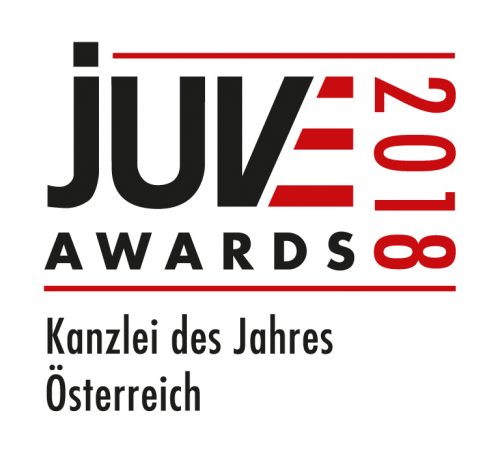Numerous media are currently reporting that several (also large Danube) hydroelectric power plants in Upper Austria are being operated without a permit under nature conservation law, according to the Upper Austrian Environmental Ombud (Landesumweltanwaltschaft, in short: LUA). The potentially affected plants were built between 1965 and 1982. The LUA is hoping for “specific requirements” while at the political level there are fears of demolition in the worst case and of expenses worth millions. In legal circles, there are discussions about further consequences, such as shutdowns, administrative penalties and UWG lawsuits by competitors. And all this against the background of the goal of a climate-neutral Austria by 2040, the global political crisis situation and energy prices at record levels … Sometimes it’s not enough to shake your head or listen to “Where is my mind” on a loop. Every now and then you have to actively flip the switch inside the head from “prevent” to “enable”. Here is some food for thought:
- To begin with, not every project requires a permit under nature conservation law (this applies to both the present and to the past). In concrete terms, the obligation to obtain a permit has to be carefully examined for each individual case. There are several (borderline) cases in the judiciary in which a competent authority attested that hydroelectric power plants were subject to a permit requirement under nature conservation law, but this requirement was denied by a higher instance after a detailed examination had been carried out.
- When examining a potential nature conservation permit requirement, many facets have to be taken into account. In some cases, a permit obligation will fail due to the lack of applicability of the relevant EU legal requirements (e.g. the requirements of the Fauna-Flora-Habitat and Birds Directives are only applicable after Austria’s accession to the European Union on January 1st, 1995), while in other cases this will have to be denied by interpreting the legal status applicable in the past (e.g. if in the past “structures on rivers” were to be subject to a nature conservation permit procedure, this does not necessarily mean that all hydroelectric power plants were also included).
- With the public interests to be taken into account, water law follows an integrative approach, which is also constitutionally covered resulting from the principle of consideration. In addition to (core) water law and economic protection aspects, interests outside the scope of competence – such as nature conservation – are also taken into account when deciding on a water law permit application. In cases in which the interests of nature conservation were also taken into account in a water law permit procedure that took place a long time ago, there is no reason to assume that an additional nature conservation procedure will be necessary.
- Prescribing “selective requirements” ex post facto is per se alien to the Upper Austrian Nature Conservation Act or would basically require a permit notice under nature conservation law issued at some point. The legal consequence of a non-existent but actually necessary nature conservation permit would be the issuance of an order to submit an application for the granting of a subsequent nature conservation permit according to the current legal situation or the issuance of an order to restore the original state (i.e. demolition).
- If, in the course of the water law procedure, “after the granting of the permit … it becomes apparent that public interests (§ 105) are not adequately protected despite compliance with the conditions and regulations contained in the permit notice or in other provisions, the authority shall … prescribe other or additional requirements necessary to achieve this protection according to the current state of the art (§ 12a), define adaptation goals and request the submission of corresponding project documents on the adaptation” (cf. § 21a WRG). If the LUA means “selective requirements” in this sense, the following has to be considered: On the one hand, the requirements of § 21a WRG – a lack of protection of public interests – cannot be fulfilled by the fact that several media reports appear in which the alleged lack of nature conservation permit is criticized. On the other hand, the nature conservation-induced desire for a requirement according to § 21a WRG would probably indicate that it is actually assumed that nature conservation interests were also taken into account within the framework of the existing water law permits and, as described above, there would therefore be no room for a subsequent additional nature conservation procedure.
- If, despite all this and in view of the energy transition, one were to insist that numerous of the hydroelectric power plants, which are extremely important for Austria and which have been reliably supplying green electricity in Upper Austria for decades, do not have a permit from the nature conservation authorities, there would only be one constructive solution: a quick amendment to the Upper Austrian Nature Conservation Act, with which an amnesty regulation is implemented in the sense of a lawful existence. Such regulations are constitutionally permissible, and they do exist, for example, in building law (cf. eg. § 40 Styrian Building Law).
New paths cannot be taken with old preventive thinking – let’s look at the bigger picture and develop solutions.
If you are interested, the members of our 360° Renewable Energy Practice Group – Johannes Hartlieb, Kaleb Kitzmüller and Mario Laimgruber – will help you. Contact us at 360ee@haslinger-nagele.com or by phone at +43 1 7186680-0.
Disclaimer
This article is for general information only and does not replace legal advice. Haslinger / Nagele Rechtsanwälte GmbH assumes no liability for the content and correctness of this article.
14. March 2022
Go back to News






